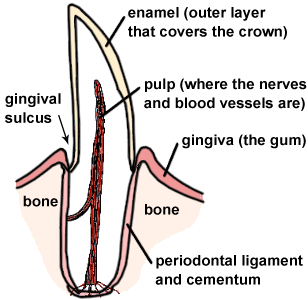

Tartar – A build up of plaque, it is comprised of various organic materials such as bacteria, serum, food particles and mineral salts. This may not be overtly evident on cursory exam. Plaque combines with dog saliva, builds up and hardens, resulting in damage causing tartar.

Plaque – The first buildup of material growing on the enamel of the tooth within hours of your dog eating. What Should I Look For When I Look in My Dog’s Mouth? However, do not rely solely on your dog’s breath to keep tabs on dental hygiene and make sure to maintain a regular veterinary checkup schedule. Foul breath could be a sign that there is something occurring in the mouth and requires a visit to the veterinarian. It’s unreasonable to expect a dog’s breath to be “minty fresh”, but it should be at least neutral. Bloody mouth, gums or gum line, or bloody saliva.Foul or fetid smell to the mouth, this includes saliva.This exam should be a part of each yearly exam. How Can I Tell if My Dog Has Bad Dental Health?Įvery dog should have a thorough oral examination by a veterinarian to assess the integrity and health of the teeth, gums, tongue and other oral structures. Though a periodic thorough veterinary dental cleaning may be eventually needed, why not try to minimize the need if you can?

Canine teeth cleaning or periodontal care performed by a veterinarian is a costly medical treatment and requires that your dog be sedated with anesthesia. Over the years as both a private practice veterinarian and dog owner, I’ve learned that when it comes to dental hygiene, taking preventative steps at home along with regular office visits are well worth the effort, not only for your pet’s overall health and comfort, but for your budget as well. Beyond discomfort and bad breath, these dental problems can lead to serious health issues including kidney disease, heart disease and more as well as costly dental care. Like humans, dogs can suffer periodontal disease, tooth decay, injured teeth and other oral health problems. Unfortunately, despite what some people believe, domestic dogs don’t automatically instinctively take care of their teeth by chewing. February is National Pet Dental Health Month, made to raise awareness of the importance of maintaining your pet’s dental hygiene.


 0 kommentar(er)
0 kommentar(er)
